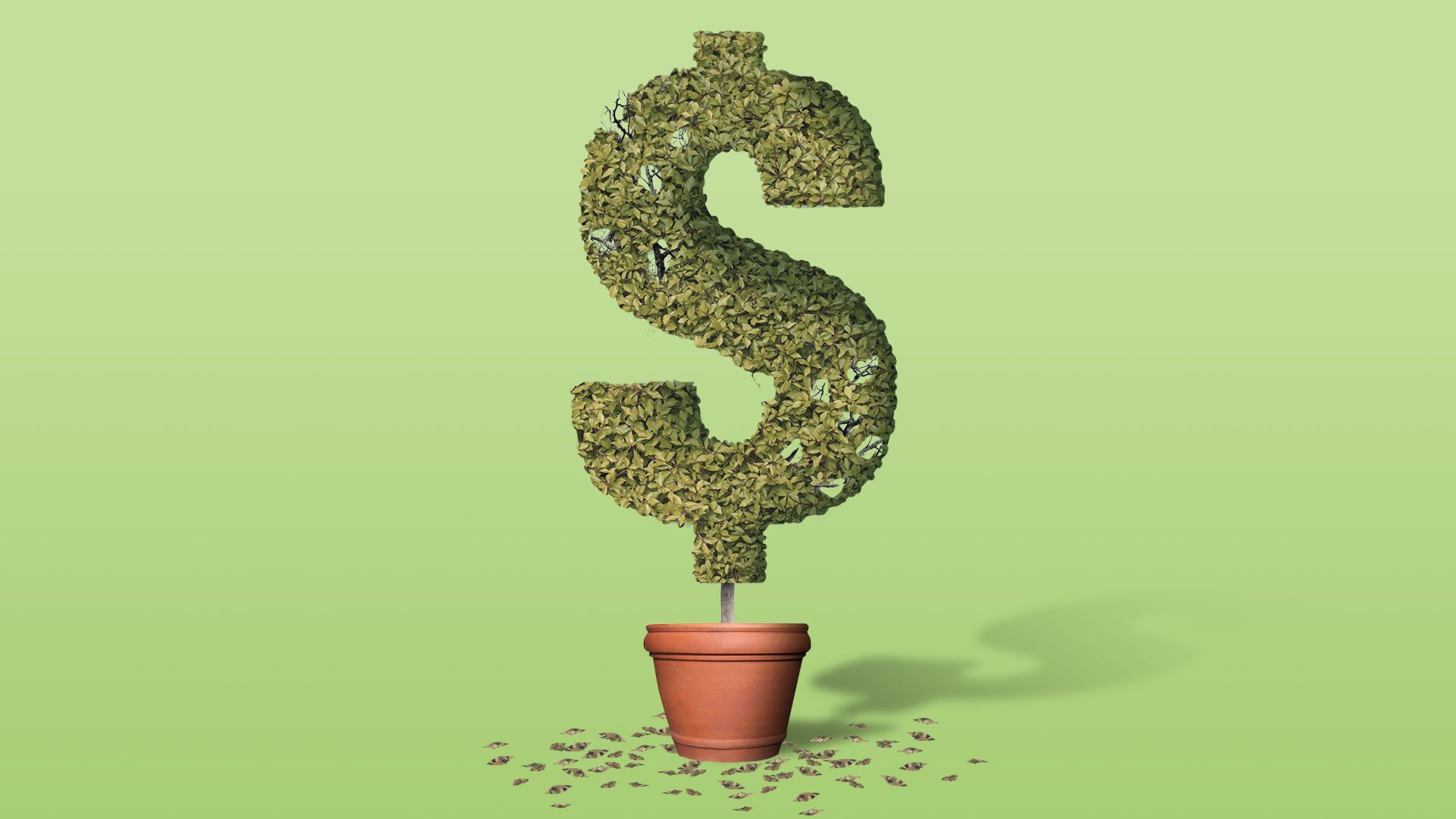How to grow the economy with biology
Add Axios as your preferred source to
see more of our stories on Google.

Illustration: Aïda Amer/Axios
A new report makes the economic and environmental case for the U.S. investing billions of dollars to build what is known as the bioeconomy.
Why it matters: Transitioning to bio-based food, fuel, materials and more could sharply reduce carbon emissions and provide a foundation for a more sustainable manufacturing economy.
- But while the U.S. is a world leader in biotech, it lags behind on the infrastructure and support needed to scale those innovations, the report finds.
By the numbers: A preliminary report from the Schmidt Futures Bioeconomy Task Force, which Axios was given early access to, calculates that the biology-based economy was already generating $960 billion in economic activity in 2016 — 5% of U.S. GDP.
- But should the U.S. invest billions in bioeconomy research and manufacturing, it has the potential to create more than a million new jobs, keep $260 billion in economic activity from going overseas, and reduce annual CO2 emissions by 450 million tons.
- "We believe that interdisciplinarity is the key to unlocking the next generation of scientific breakthroughs and because of this, we invest in high-risk, high-reward research like the bioeconomy which has the potential to improve the lives of everyone across the globe," says Eric Braverman, CEO of Schmidt Futures, a philanthropic initiative founded by Eric and Wendy Schmidt that focuses on supporting people solving hard problems in science and society.
Between the lines: While much of the attention on biotech tends to focus on medicine or fuel, some of the most promising applications involve using biological engineering to make fabrics, replace materials like plastics currently made with petrochemicals, and make farming more sustainable.
The catch: "What's missing is the next step, the lack of basic research into understanding the science of manufacturing and the science of biomanufacturing," says Andrea Hodgson, a fellow at Schmidt Futures and co-leader of its bioeconomy program.
- Most bioscience research in the U.S. is curiosity-driven, rather than application driven, the report finds, leaving the country at risk of falling behind the E.U. and China in actually translating biotechnology into economic value.
- "We don't want to go the way of the semiconductor industry," where innovation at home doesn't translate to domestic industry, says Mary Maxon, a senior fellow at Schmidt Futures who also co-leads its bioeconomy program.
What to watch: The report recommends that the government invest $600 million over five years in a Bioproduction Science Initiative overseen by the National Science Foundation, as well as another $1.2 billion in bioproduction infrastructure and public-private partnerships to scale development.
The bottom line: "The investments are needed to solve today's problems and set the course for a truly circular economy in the future, ensuring the U.S. keeps the competitive edge on biotech," says Maxon.
Editor's note: This story has been updated to describe Schmidt Futures' focus on supporting people working on social and science problems.
